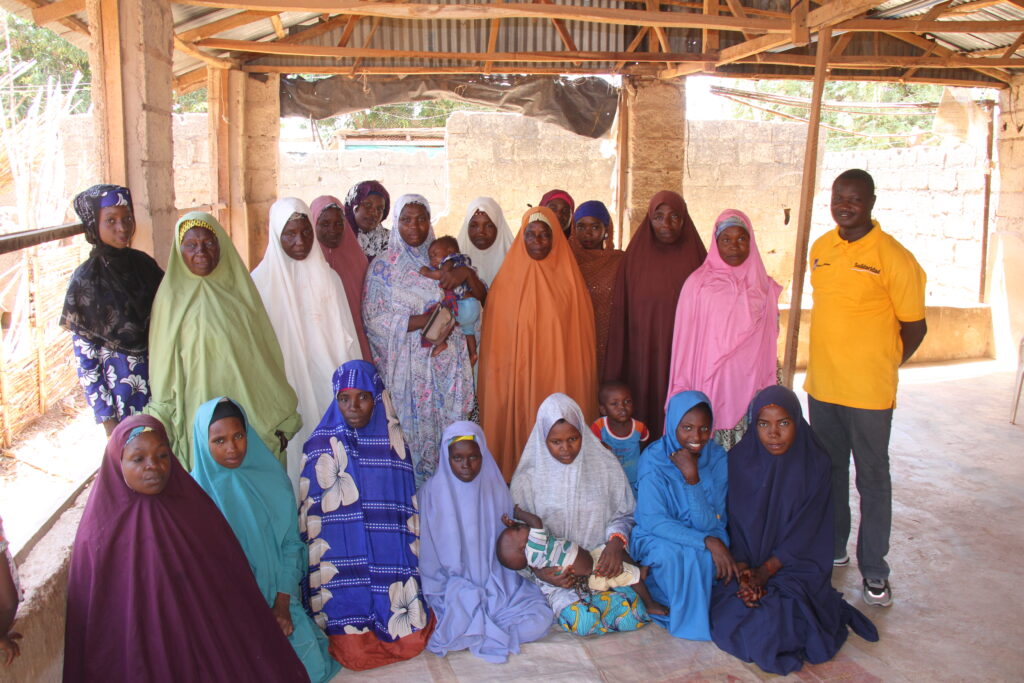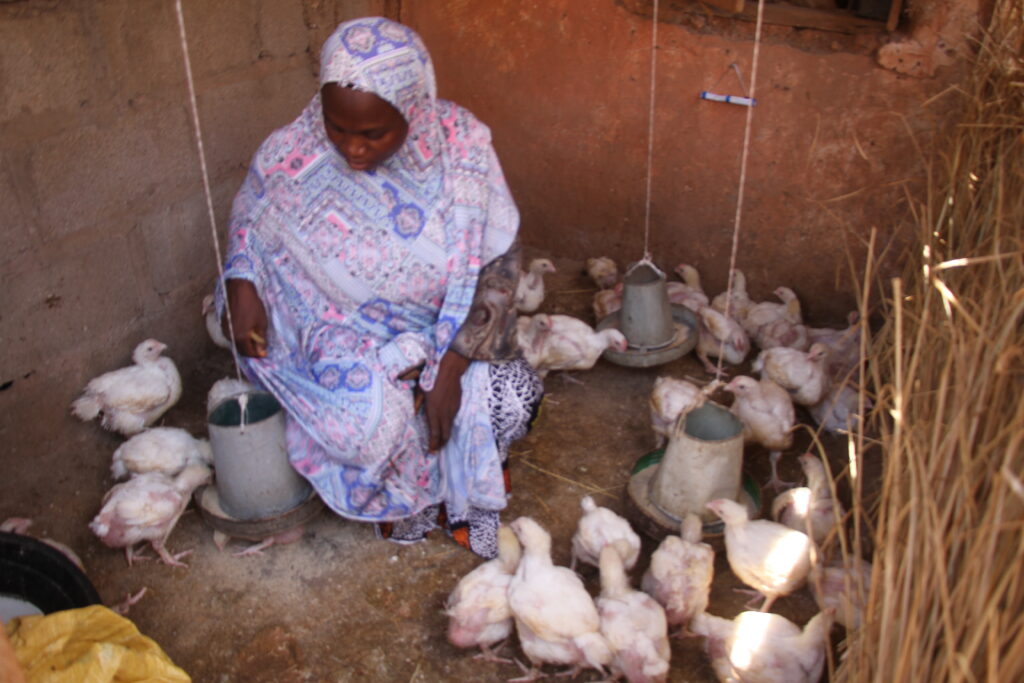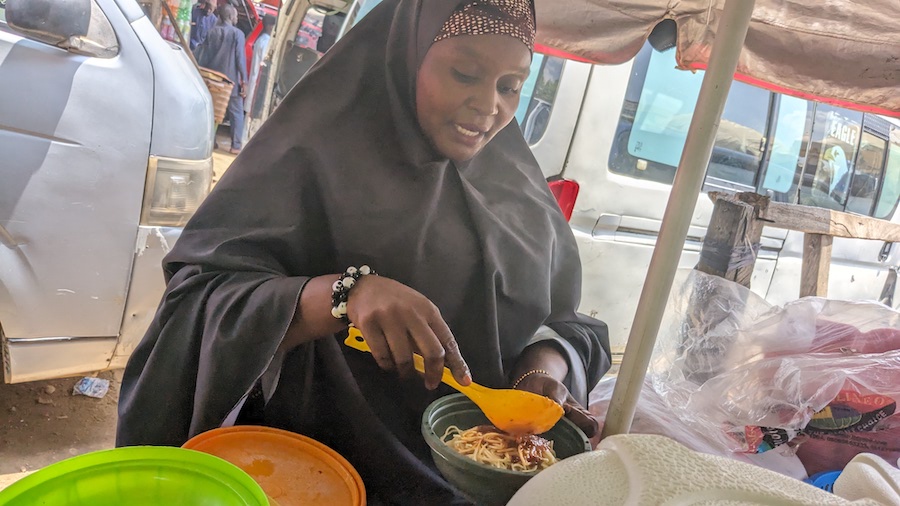Most rural women in northern Nigeria rely on subsistence farming as their primary source of employment in spite of the meager incomes that barely support their families. The majority of these women would pursue alternative income-generating activities, but lack the access to finance that could help them fund their aspirations.
For 34 years, Salamatu Saidu, a widow and mother of six, farmed onions on a half-hectare of land in the Kano state of Nigeria to support her children. With just an average income of 78,000 naira (US$101.36) annually, it was difficult for her to support her family.
“The income from my produce was insufficient for savings or investment in other businesses. Produce prices are usually low, especially during the harvest period when the market experiences a glut, so my income is usually used for the family upkeep,” says Salamatu.
With six children to care for and no partner, three of her children dropped out of college after their second year due to her inability to pay for their fees.
Providing women with financial assistance
Village Savings and Loans Associations (VSLA) are an approachable way to create a social safety net and provide access to finance for smallholder women and young farmers. Solidaridad’s Sustainable Goal Development project in northern Nigeria, is helping to change the narrative of women like Salamatu, and other fruit and vegetable farmers.
The VSLA model is a community-based savings and loans group that allows its members to collectively manage their own resources. By making weekly contributions, farmers can save and qualify for credit from the pooled contributions of members at a mutually agreed-upon interest rate. These loans can then be invested in starting a business, improving their farms, paying for children’s education, or any other need. At the end of the annual cycle, the group’s accumulated savings and profits are distributed to members based on their contributions at a share-out-event.
Members of the association received capacity building on the modalities of the scheme, financial literacy and alternative income-generating activities.

In 2021, Salamatu joined a VSLA group called Raising People in her community. After saving for some months, she was able to secure a loan of 100,000 naira (US$130) in 2022. She used to purchase soybeans to produce pap, a type of baby food, that could be sold at her community market as an alternative source of income.
After one year of paying back her loans and accessing more credit, her business is now worth 242,000 naira (US $309) and she has hired four young people to handle sales in the community. Salamatu also invested in a food vending business in her community. She is quickly becoming one of the major food vendors in the area.
Thanks to the increase in revenue, Salamatu’s children are all back in school. She has also been able to increase her farm size from 0.45 hectares to 1.2 hectares. And earlier this year, she purchased a motorcycle as a means of transportation to her farm.
“The period where we did not have any source of funds for investment in our farms and businesses, as well as for emergencies, is long gone. With the introduction of the Village Savings and Loans Association, most of the women in my community are now able to access funds to add value to their produce, which is improving their income,” says Salamatu with a broad smile.
Like Salamatu, many other women have opened small businesses, including bakeries, bulk trading of grains, and animal husbandry. With a loan of 50,000 naira (US$65 dollars), Binta Abdulrahman, a member of Salamatu’s VSLA group, invested in a poultry farm and currently earns an income of 201,000 naira (259 dollars) annually.
“With this income, I have been able to send my children to better schools in the community. Last academic year, I was happy to support my husband with the school fees for our two children,” says Binta.

In Dawakin Tofa the VSLA has helped 154 women entrepreneurs from different communities. The five associations in the community have an average of 650,000 naira (US$838 dollars) in savings each.
Kene Onukwube, Programme Manager at Solidaridad in Nigeria, said the scheme has proven to be an effective tool for empowering women and creating positive social and economic changes in Nigeria’s rural economies and communities.
Improving access to finance for smallholders, especially rural women, is a powerful equalizing force that gives low-income households new tools to increase their incomes, improve financial resilience and access to new economic and social opportunities.
Kene Onukwube, Programme Manager at Solidaridad in Nigeria
So far, Solidaridad has facilitated the establishment of 109 VSLA groups with a membership of 2,725 under the Sustainable Development Goal Project implemented in the Kano and Kaduna states of Nigeria. This has created a pool of funds for beneficiary farmers in communities where the project is being implemented.The Sustainable Development Goal Project (SDGP) seeks to transform the fruits and vegetable market in Nigeria and is funded by the Kingdom of the Netherlands.

